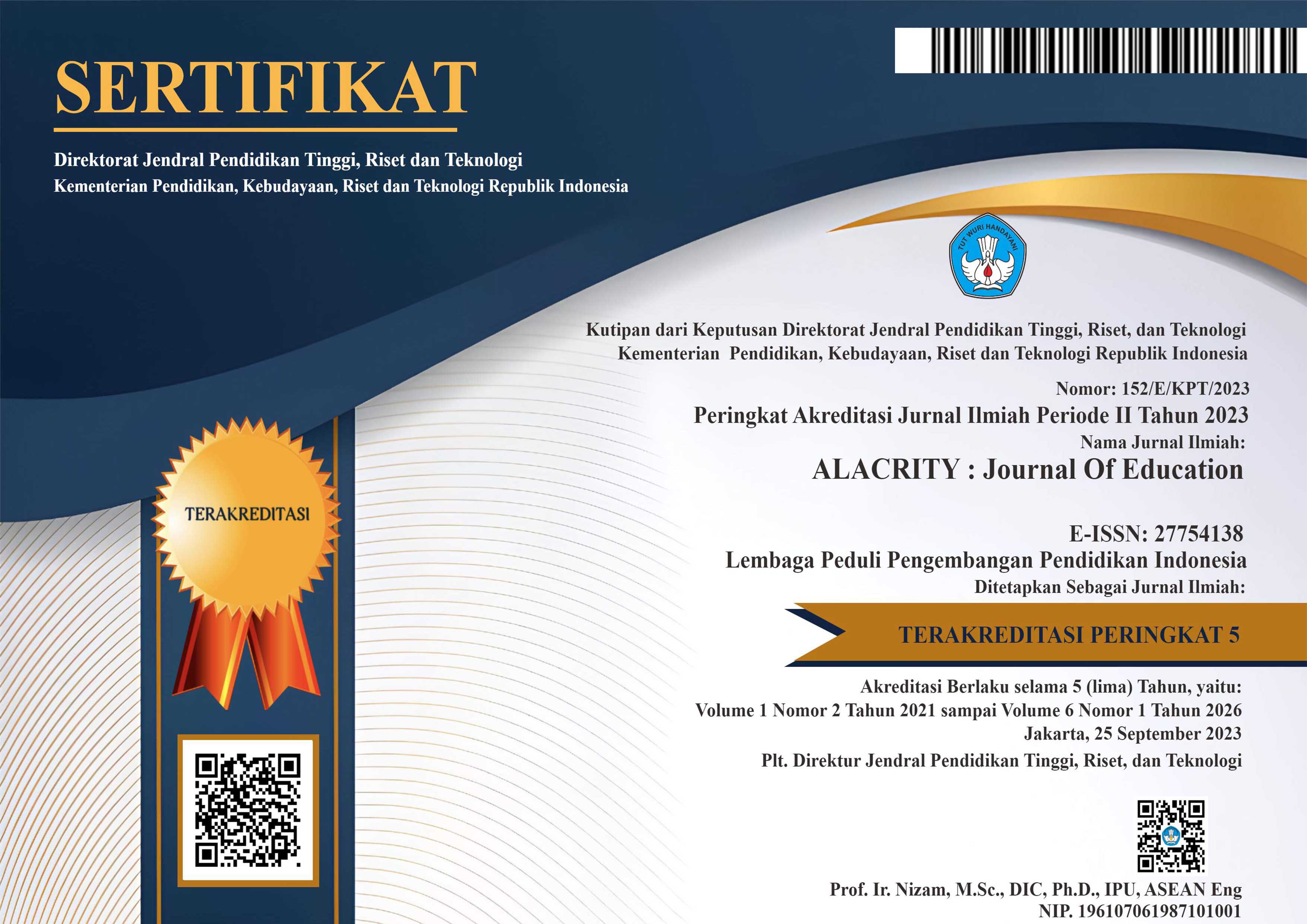Innovative Approaches to Educational Management in the Digital Era
DOI:
https://doi.org/10.52121/alacrity.v5i3.890Keywords:
Educational Management, Digital Era, Innovation, Leadership, Institutional Adaptability, CultureAbstract
The rapid advancement of digital technologies has reshaped educational systems worldwide, compelling institutions to reconfigure their management strategies in order to sustain quality and relevance. This study explores innovative approaches to educational management in the digital era, with particular attention to leadership practices, institutional adaptability, and cultural readiness in Indonesian educational institutions. The purpose of this research is to identify how schools and universities strategically align digital transformation with organizational goals and to assess the challenges that influence the sustainability of innovation. A qualitative design was employed using a multiple case study approach, involving purposive sampling of 35 participants, including university leaders, school principals, administrative staff, and teachers. Data were collected through semi-structured interviews, focus group discussions, and document analysis, and analyzed thematically with the assistance of NVivo software. The findings reveal three major themes: first, leadership strategies, especially collaborative and visionary leadership, serve as critical drivers of digital transformation; second, institutions display varying levels of adaptability, with universities utilizing structured digital governance systems and schools relying on simpler platforms due to resource constraints; and third, cultural and organizational barriers, such as resistance to change and limited digital literacy, hinder sustainable innovation. This research contributes to the literature by providing empirical evidence from a developing country context and proposing a conceptual understanding of educational management that integrates leadership, adaptability, and cultural factors. The study concludes that innovation in educational management is essential to building institutional resilience and ensuring meaningful educational outcomes in the digital age.
Downloads
Published
Issue
Section
License
Copyright (c) 2025 Jhon Freser

This work is licensed under a Creative Commons Attribution-ShareAlike 4.0 International License.













